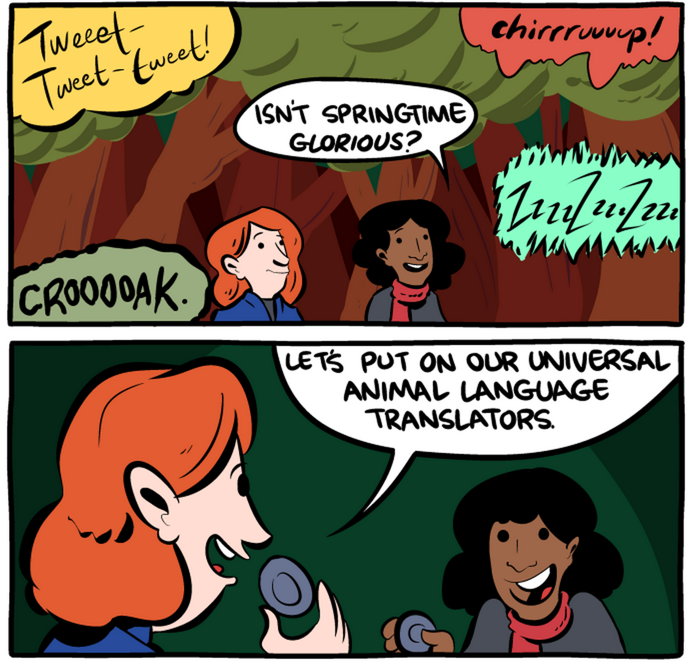Vanessa Ruiz
Fernanda Santos and Christine Hauser, "Arizona News Anchor Is Drawn Into Debate on Her Accent and the Use of Spanish", NYT 9/3/2015:
An Arizona news anchor defended her pronunciation of Spanish words during English broadcasts, saying she delivers them the way the language is intended to be spoken. […]
Ms. Ruiz, who was raised in a bilingual household, said some viewers had questioned her way of pronouncing Spanish words. Sandra Kotzambasis, the station’s news director, said viewers were asking why Ms. Ruiz “rolled her Rs.”
The most striking thing about this controversy is how small the issue really is, at least in terms of the number and type of words whose pronunciation is contested.
Read the rest of this entry »
Typical options like “he� and “she�
Collin Binkley, "He? She? Ze? Colleges add gender-free pronouns, alter policy", AP 9/18/2015
Welcome to Harvard. Feel free to pick a pronoun on this form: __ He. __ She. __ Ze. __ E. __ They.
During the registration process at Harvard University, students are now allowed to indicate which pronouns they use, with suggested gender-neutral options like "ze" or "they." Harvard isn't the first college to embrace gender-neutral pronouns, but it's among a wave of major institutions that are widening their policies and pronouns to acknowledge transgender students, as well as "genderqueer" students, who don't identify as male or female.
Read the rest of this entry »
Handwriting recognition
The phys.org website has a new article that piqued my interest:
"96.7% recognition rate for handwritten Chinese characters using AI that mimics the human brain" (9/17/15)
Read the rest of this entry »
Vocabulary display in the CNN debate
For fans of what we might call rhetoricometry — methods that let you analyze political discourse without having to listen to it or read it :-) — here's a type-token plot of the contributions to Wednesday's CNN debate of five of the eleven candidates who were featured in the prime-time round:
Read the rest of this entry »
Political pitches
At a loss for what else to say about last night's debate, I decided to follow up on "Political pitch ranges" (4/22/2015) by taking a look at the f0 quantiles of the 11 candidates' opening remarks:

Read the rest of this entry »
Niubi ("awesome") revisited
In recent years, this has been one of the most common modifiers and exclamations in Chinese. You can say just "niu" by itself, where "niu" actually means niú 牛 ("cow"), but that's an elision of "niuB" or "niubi", which in turn means "cow pussy". Although "niu(B/bi)" is used so frequently, in mixed company, on packaging, and so forth that it has lost much of its original shock value, it now means not much more than "awesome". Nonetheless, I would recommend scrupulously avoiding it in situations where you are expected to be polite and formal.
Although "niu(B/bi)" may amount to "awesome", it is far more colorful and crude. The origin of this usage is quite vulgar; for explanations, see here, here (with links to other posts in which the term is treated), also here and here.
Read the rest of this entry »
Walmart China talk
Don't think that a Walmart in China is like a Walmart in America. Far from it. Chinese Walmarts carry many products tailored for the local market that you would never find in an American Walmart.
Here are "20 Things You'll Only See in Chinese Walmarts".
I won't go through all 20 of these curious items in detail, but will focus mainly on a few that are linguistically or otherwise of particular interest.
Read the rest of this entry »
English transcription quiz
Can you understand this variety of English?
How about this clip?
Or this?
For the answers, look beyond…
Read the rest of this entry »
When CARLY is not Carly
Rebecca Ballhaus, "CARLY, not Carly, Made This Popular Carly Fiorina Video", WSJ 9/14/2015:
A new video in which Carly Fiorina embraces her age and her gender has drawn wide attention, and was praised by a prominent blogger as one of the best spots of the 2016 race so far. But in a wrinkle fitting this modern campaign age, Ms. Fiorina’s campaign had nothing to do with it.
The new video opens by telling viewers it’s a “message from Carly.” It features a clip of the former business executive addressing a cheering crowd as she rebuts disparaging comments from GOP frontrunner Donald Trump about her looks. “This is the face of a 61-year-old woman. I am proud of every year and every wrinkle,” Ms. Fiorina says in the video, shot last week at a speech in Phoenix. Interspersed are pictures of other women, young and old.
The video beckons viewers to “join us” at “www.CARLYforAmerica.com,” and closes with the words “CARLY for AMERICA” across the screen.
The twist: The maker of the video, “CARLY for America,” isn’t the Fiorina campaign, which is called “Carly for President.” CARLY for America is instead a pro-Fiorina super PAC formally known as Conservative, Authentic, Responsive Leadership for You and for America. The super PAC adopted the acronym earlier this year after the Federal Election Commission said it wasn’t allowed to explicitly include Ms. Fiorina’s name.
Read the rest of this entry »
Raw "cyber" information
A recent xkcd:

Mouseover title: "We had gathered that raw information, but had yet to put it all together."
Read the rest of this entry »
New discovery in English historical lexicography
A retired lecturer in medieval history, Dr Paul Booth, has discovered a reference in a 1310 court record to a man named Roger Fuckebythenavele, and he believes it really does mean that the man was known as Roger Fuck-By-The-Navel, the surname (possibly a nickname given by enemies) actually meaning "fuck via the belly button", so this may be the earliest known use of the verb fuck in its sexual sense.
Read the rest of this entry »
Permalink Comments off


